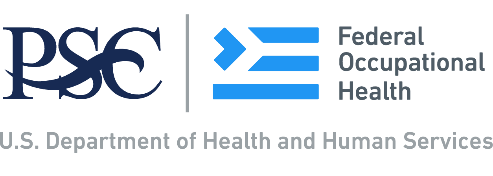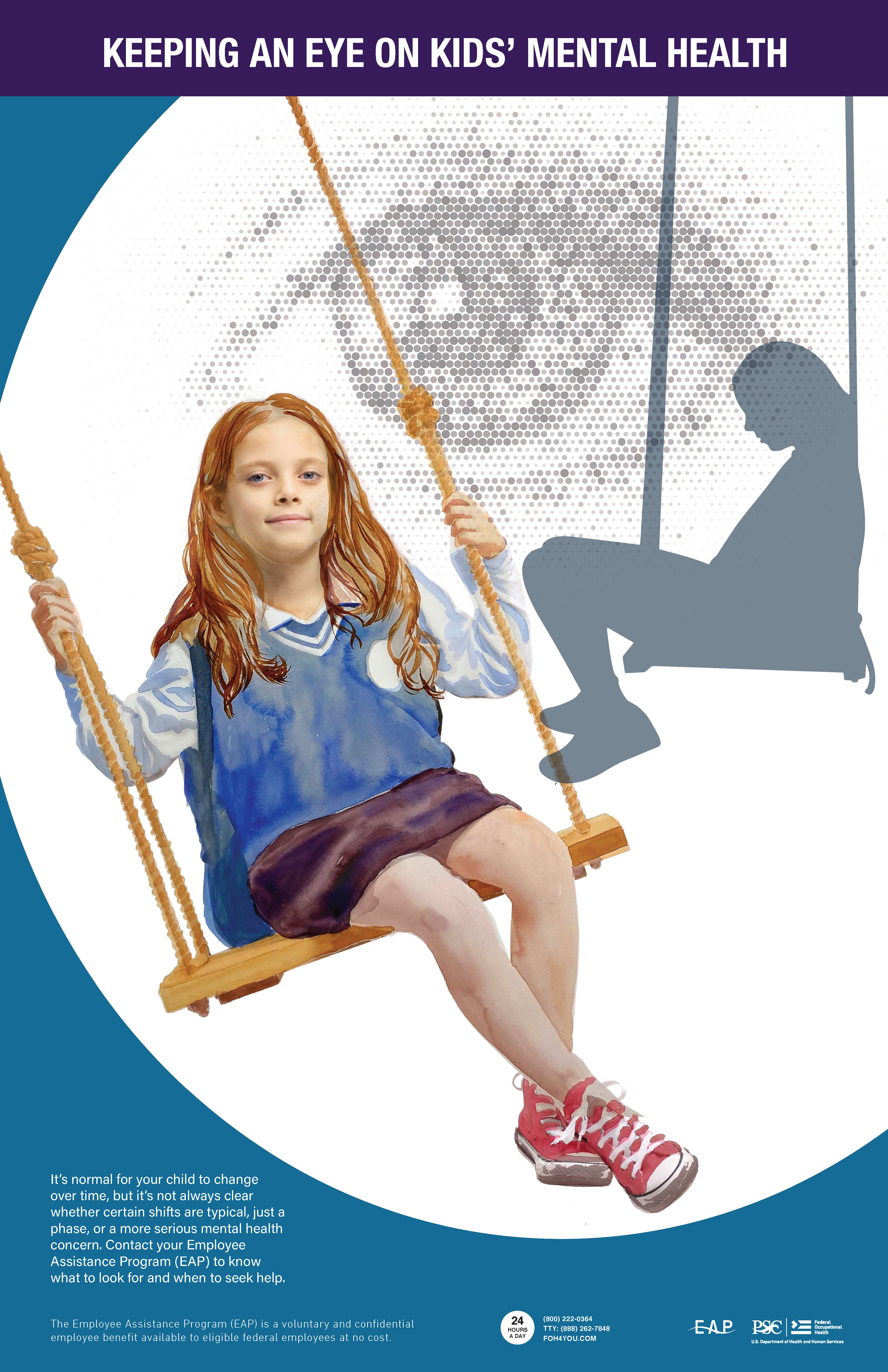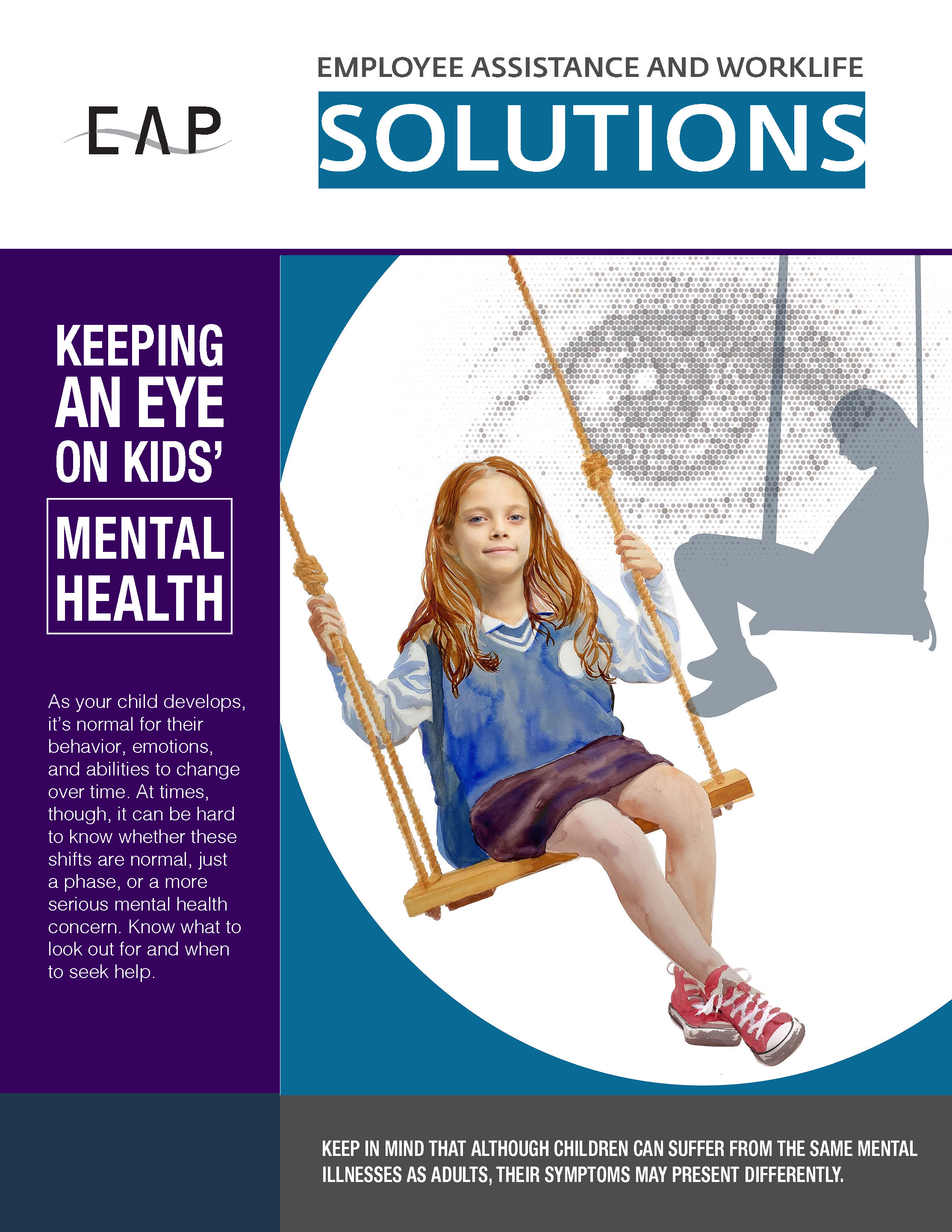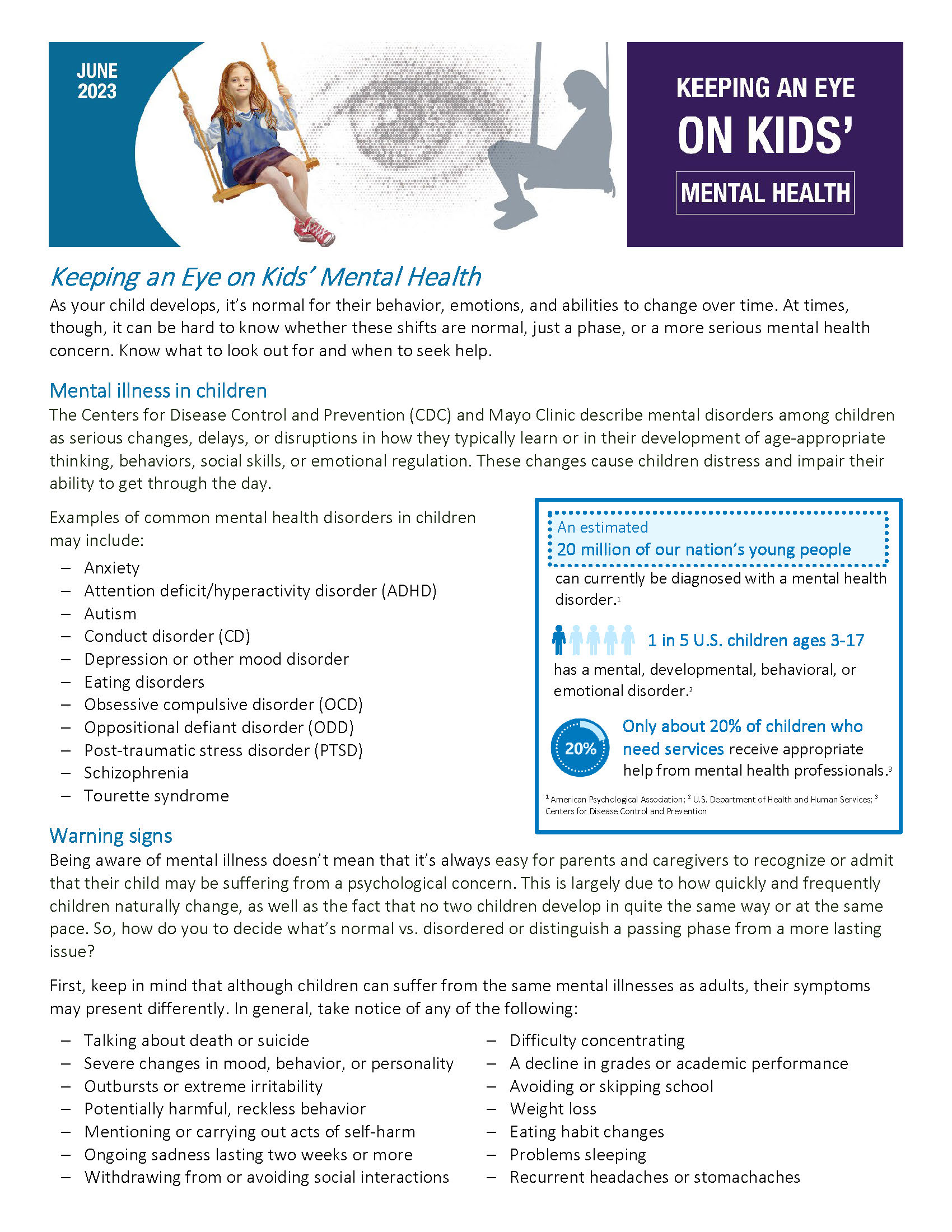
As your child develops, it’s normal for their behavior, emotions, and abilities to change over time. At times, though, it can be hard to know whether these shifts are normal, just a phase, or a more serious mental health concern. Know what to look out for and when to seek help.
Mental illness in children
The Centers for Disease Control and Prevention (CDC) and Mayo Clinic describe mental disorders among children as serious changes, delays, or disruptions in how they typically learn or in their development of age-appropriate thinking, behaviors, social skills, or emotional regulation. These changes cause children distress and impair their ability to get through the day.
Examples of common mental health disorders in children may include:
- Anxiety
- Attention deficit/hyperactivity disorder (ADHD)
- Autism
- Conduct disorder (CD)
- Depression or other mood disorder
- Eating disorders
- Obsessive compulsive disorder (OCD)
- Oppositional defiant disorder (ODD)
- Post-traumatic stress disorder (PTSD)
- Schizophrenia
- Tourette syndrome
Warning signs
Being aware of mental illness doesn’t mean that it’s always easy for parents and caregivers to recognize or admit that their child may be suffering from a psychological concern. This is largely due to how quickly and frequently children naturally change, as well as the fact that no two children develop in quite the same way or at the same pace. So, how do you to decide what’s normal vs. disordered or distinguish a passing phase from a more lasting issue?
First, keep in mind that although children can suffer from the same mental illnesses as adults, their symptoms may present differently. In general, take notice of any of the following:
- Talking about death or suicide
- Severe changes in mood, behavior, or personality
- Outbursts or extreme irritability
- Potentially harmful, reckless behavior
- Mentioning or carrying out acts of self-harm
- Ongoing sadness lasting two weeks or more
- Withdrawing from or avoiding social interactions
- Difficulty concentrating
- A decline in grades or academic performance
- Avoiding or skipping school
- Weight loss
- Eating habit changes
- Problems sleeping
- Recurrent headaches or stomachaches
What to do
If you’re concerned about your child’s mental health, or if you’re unsure if their symptoms could indicate a more serious issue, talk to your child’s doctor. Consider checking with their teachers or other caregivers first to gain additional insight about any changes or troubling behavior they’ve noticed. That way, you’re equipped to discuss your concerns, and any of theirs, when you consult with your child’s physician. From there, your child’s doctor may recommend a professional evaluation by a psychiatrist, psychologist, clinical social worker, or other specialist who can confirm the presence of a mental health disorder and suggest treatment options as needed.
If your child is ultimately diagnosed with a mental health disorder, it’s helpful to educate yourself about their illness and to remember that you’re not alone. Seek advice from professionals for guidance on how to respond to and manage with your child’s symptoms. Engage with community groups for support from other parents and caregivers who have experience with similar conditions. Talk to your child’s teachers and the school to discuss available resources or accommodations as appropriate.
Download the Campaign
|
PDF Newsletter |
PT Newsletter |
|
Also be sure to reach out to your Employee Assistance Program (EAP) for help and support. Consultants are available 24/7 to provide more information, help you find local support groups or other helpful resources, and/or schedule an appointment for you with a licensed clinical therapist in your area. 24 HOURS A DAY
The EAP is a voluntary and confidential employee benefit available to eligible federal employees at no cost. |




